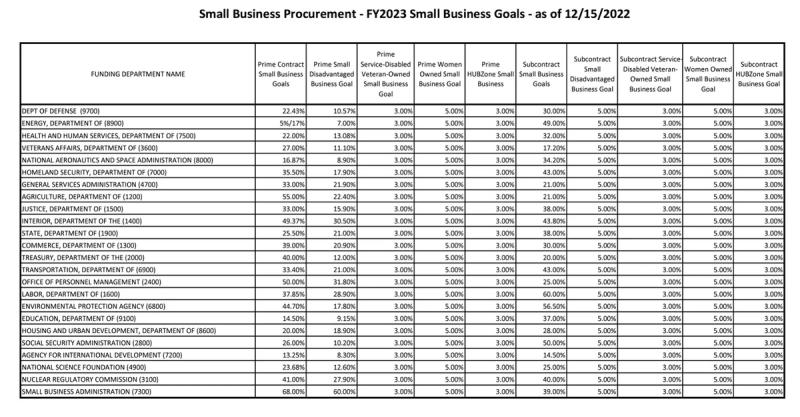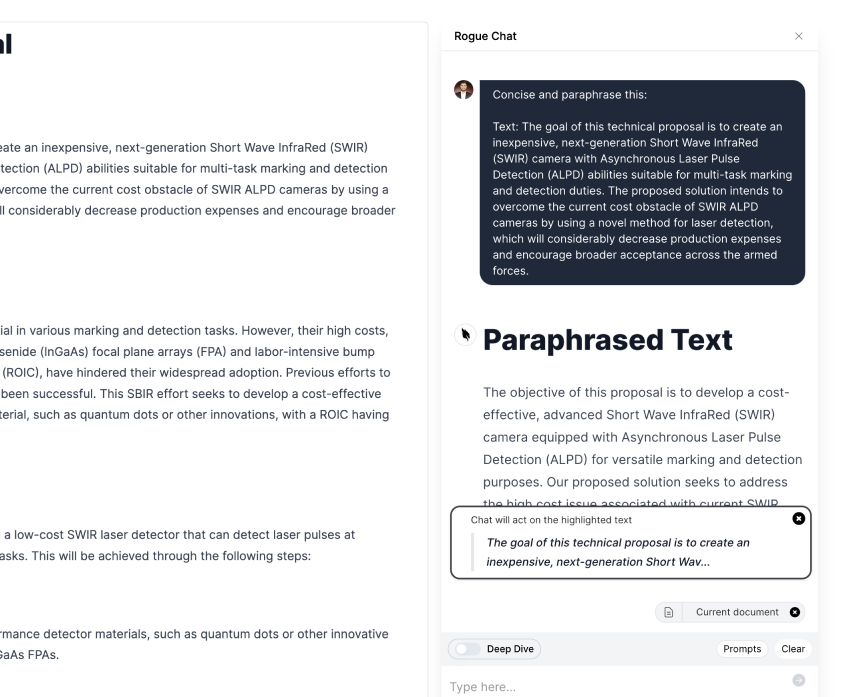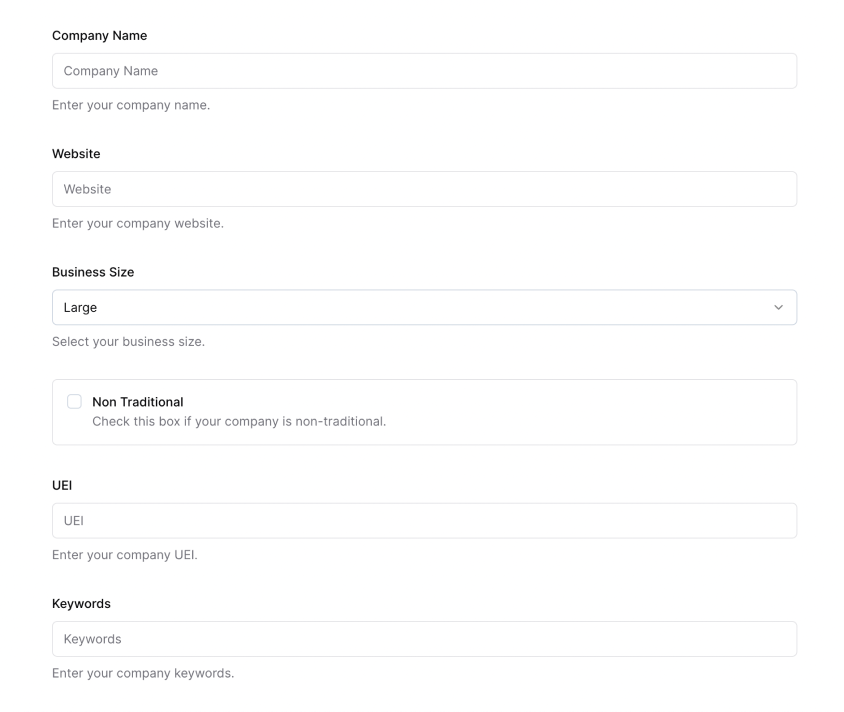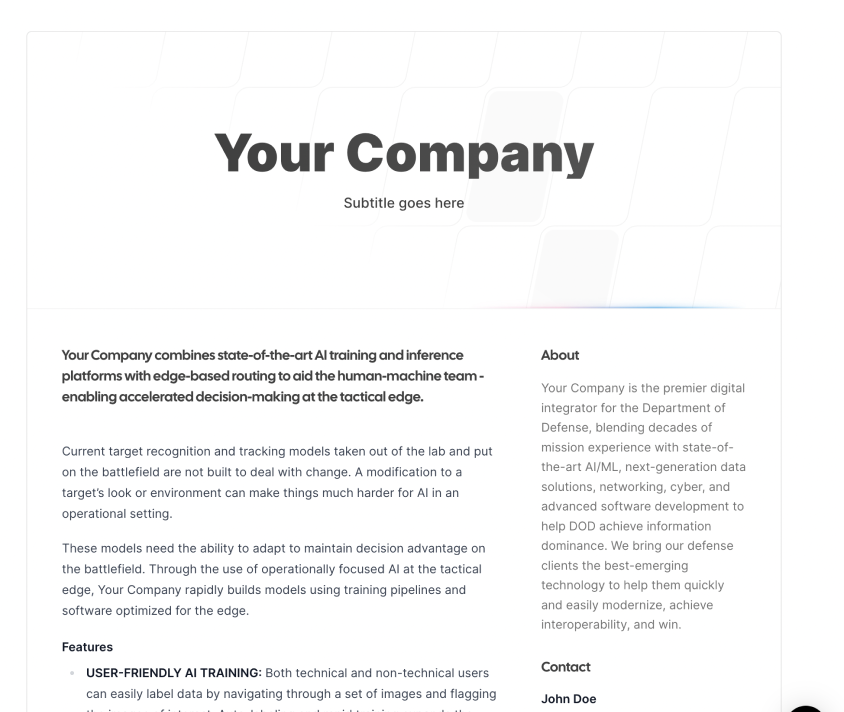
A Comprehensive Checklist for Entering the Government Contracting Arena
Small businesses can benefit greatly from government contracts. However, the government contracting arena can be daunting to navigate. This checklist provides a comprehensive guide to help small business owners enter the government contracting arena.
Table of contents
Small businesses can benefit greatly from government contracts. However, the government contracting arena can be daunting to navigate. This checklist provides a comprehensive guide to help small business owners enter the government contracting arena.
Step 1: Research
The first step towards entering the government contracting arena is conducting thorough research. As a small business owner, it's crucial to understand the process of government procurement and how it works. Resources like SAM.gov can provide valuable insights into government contracting opportunities and help you identify potential clients. To gain more knowledge about this complex process, leveraging professional networks or attending relevant events or conferences can also be beneficial in learning about government contracts. Meeting with other professionals in your industry who have experience in working with the government can provide valuable insights and advice on navigating this field successfully. Before taking any steps towards bidding for a contract, researching the process thoroughly should be your top priority. It is important to know how to find opportunities that are relevant to your business, how to submit proposals effectively, and ultimately, how contracts are awarded by different agencies within the federal government. Furthermore, researching specific agencies that align with your business goals is essential as each agency may have unique requirements or needs that must be met before they consider awarding a contract. By doing so, you will be better equipped to tailor your proposal specifically to their needs and stand out from competitors in winning bids. Conducting comprehensive research before venturing into the world of government contracting is indispensable for small businesses looking for success in this space. With ample resources available online combined with networking strategies such as attending seminars/conferences - businesses owners will increase their chances of securing lucrative federal contracts while minimizing risks associated with missteps along the way!
Step 2: Register your Business
In order to compete for government contracts, small business owners need to register their business with the government. Registering with System for Award Management (SAM) is the first step in this process. Additionally, there are several certifications available such as 8(a), HUBZone, and Women-Owned Small Business (WOSB) which can provide additional benefits when pursuing contracts with the government.
Registering your business with SAM is a critical step in the government contracting process. SAM is the official government website for businesses to register and become eligible for federal contracts. Additionally, there are several certifications available that can help small businesses win government contracts. These certifications include:
- 8(a): This certification is for small businesses owned and operated by socially or economically disadvantaged individuals.
- HUBZone: This certification is for small businesses located in Historically Underutilized Business Zones.
- WOSB: This certification is for small businesses owned and controlled by women.
- VOSB: Veteran-Owned Small Business (VOSB) Set-Aside prioritizes veteran-owned businesses.
- SDVOSB: Service-Disabled Veteran-Owned Small Business (SDVOSB) Set-Aside is for veterans with service-related disabilities.
Government contract small business set-asides are a vital component of the U.S. government's efforts to support and promote small businesses' economic growth and sustainability. These set-asides are specifically designed to reserve a portion of federal contracts for small businesses, offering them a fair opportunity to compete for and win government contracts. By achieving annual contracting goals, these programs contribute to the economic empowerment of small businesses and the communities they serve. Ultimately, government contract small business set-asides play a crucial role in fostering a more diverse and inclusive federal procurement landscape.

Step 3: Understand Your Market
One of the most important steps in entering the government contracting arena is to understand your market. Knowing what you offer and how it fits into the government's needs will help you identify potential customers and opportunities for growth. Therefore, researching other companies in your market can be helpful to gain insights on what government customers buy and what they need. For instance, by analyzing successful contractors' portfolios, you can learn about their strengths, weaknesses, strategies, pricing models or even partnerships with other companies. By doing so, small business owners could tailor their approach to better meet customer demands and differentiate themselves from competitors. Moreover, leveraging bid matching services such as govtribe or GovWin IQ can provide valuable information on upcoming projects and contracts that fit a company's specific capabilities. These services allow businesses to track relevant opportunities based on various factors like agency size, location or contract type. Another option is using specialized software tools such as bidspeed or alphabrook that streamline the process of identifying federal procurement opportunities while supporting team collaboration during proposal development stages. Lastly but not leastly; The Apex Accelerator programs are designed specifically for small businesses interested in pursuing federal contracting opportunities. These accelerator programs offer training sessions on topics ranging from marketing strategies to understanding complex RFPs (requests for proposals). They also provide networking events where entrepreneurs can connect with industry professionals and potential partners who share similar goals.
When it comes to government contracting, understanding your market is a crucial aspect of success. As a small business owner, you need to have a clear picture of the products or services that you offer and how they fit into the larger government procurement landscape. This can include identifying niche areas where you excel, as well as any potential gaps in the market that your business could fill. In addition to knowing your own strengths and weaknesses, it's also important to be aware of your competitors. Who else is vying for contracts in your space? What are their strengths and weaknesses? By conducting thorough research on the competition, you can identify opportunities for differentiation and develop strategies for standing out from the crowd. Another key aspect of understanding your market is getting inside the head of government customers. What are their needs when it comes to procurement? How do they evaluate vendors? The more insight you have into these questions, the better positioned you will be to tailor your offerings accordingly. Ultimately, success in government contracting requires a deep understanding not just of what your business does but also how it fits into this complex ecosystem. By taking time to research and analyze all aspects of your market—from competitors to customers—you'll be better equipped to win contracts and grow over time.
Step 4: Identify Opportunities
Entering the government contracting arena can be a daunting task for any business, but identifying the best opportunities is crucial to success. In order to find the right government contracts for your business, it is important to conduct thorough research and analysis of available opportunities. This will involve understanding your company’s core competencies and capabilities, as well as identifying gaps in your current portfolio that could be filled through government contracting. Once you have identified potential areas of opportunity, it is important to carefully evaluate each contract based on several key factors. Timing is one such factor – some contracts may require immediate action whereas others may have longer lead times or ongoing needs. It is also necessary to consider the size of projects that are most suitable for your business; smaller companies may need to start with smaller contracts before progressing onto larger ones. Payment terms are another critical consideration when selecting government contracts. Some agencies offer faster payment schedules than others, which can help improve cash flow and support ongoing operations. Additionally, it’s essential to examine the competitive landscape within each specific market segment in order to understand how difficult or easy it might be for your company to secure work in that area. Overall, conducting a comprehensive evaluation of available opportunities will enable you make informed decisions about where best focus your resources in order maximize profitability and growth potential while minimizing risk exposure during this transition period into public sector work.
Step 4 of the comprehensive checklist for entering the government contracting arena involves identifying opportunities, but it's not enough to simply submit proposals blindly. Small business owners need to take a strategic approach when evaluating potential contracts and weigh all factors before deciding whether or not to pursue them. One critical consideration is reviewing the scope of work and requirements outlined in the contract. This information will help you determine if your company has the necessary skills, experience, and resources to successfully execute the project. Additionally, it's important to consider other pertinent details such as budget requirements, timelines for completion, and payment terms. For example, if a contract requires a large upfront investment with delayed payment schedules that could strain your finances or impact cash flow negatively. Beyond these specifics considerations are larger questions about how each opportunity fits into your overall business strategy. Does this contract align well with your firm’s core competencies? Is there room for growth in this niche market?
By carefully evaluating government contracts using these various criteria as guideposts small business owners can make informed decisions that best position their companies for success in winning new government customers while avoiding unnecessary risks that may have negative impacts on profitability down-the-line.
Step 5: Prepare and Submit Proposals
The process of entering the government contracting arena can be complex and challenging. However, creating a strong proposal is one of the most essential steps to achieving success in this space. A well-crafted proposal not only showcases your company's strengths but also presents a clear understanding of what you offer and how it aligns with the requirements outlined by the agency or contractor. To create an impactful proposal, start with an introduction that provides an overview of your business, including its history and accomplishments. This helps establish credibility and demonstrates that you have experience delivering quality products or services in your industry.
Next, focus on providing detailed descriptions of the product or service offered. It is important to highlight how your offerings meet specific needs outlined by the agency or contractor while showcasing any unique features that differentiate you from competitors. When it comes to pricing structures, transparency is key. Be sure to include all costs associated with delivering products or services as well as any applicable taxes or fees. Additionally, providing customer references can help build trust and demonstrate previous successes in similar projects. While including relevant information is crucial for developing a winning proposal, ensuring it is concise makes it easier for evaluators to understand quickly without missing critical details. Make sure proposals are written clearly and logically while avoiding unnecessary jargon or technical terms that may confuse readers unfamiliar with your industry.
Finally, always follow instructions provided by agencies/contractors when submitting proposals – failing which could disqualify you right at first base! By adhering closely to guidelines such as formatting requirements and submission deadlines
Step 6: Follow Up
Following up after submitting a proposal is key to success in the government contracting arena. Staying in touch with government officials and contractors can help small businesses remain top of mind when new opportunities arise. Additionally, it is important to keep track of any changes to regulations or requirements that could affect your business.
Small business owners should follow up with government officials and contractors after submitting proposals. This includes sending thank you notes or emails, as well as checking in periodically to see if there are any updates or new opportunities. It is also important to stay up-to-date on any changes to regulations or requirements that could impact your business.
Final Thoughts
This checklist provides a comprehensive guide for small business owners entering the government contracting arena. Taking action on this checklist can help small business owners get started on the right foot when competing for government contracts. For further learning, additional resources such as Small Business Administration (SBA) and Federal Acquisition Regulation (FAR) can be consulted.
Entering the government contracting arena can be a lucrative opportunity for small businesses. However, it requires careful planning, research, and execution. By following this comprehensive checklist, small business owners can increase their chances of success in the government contracting arena.
Sign up for Rogue today!
Get started with Rogue and experience the best proposal writing tool in the industry.



